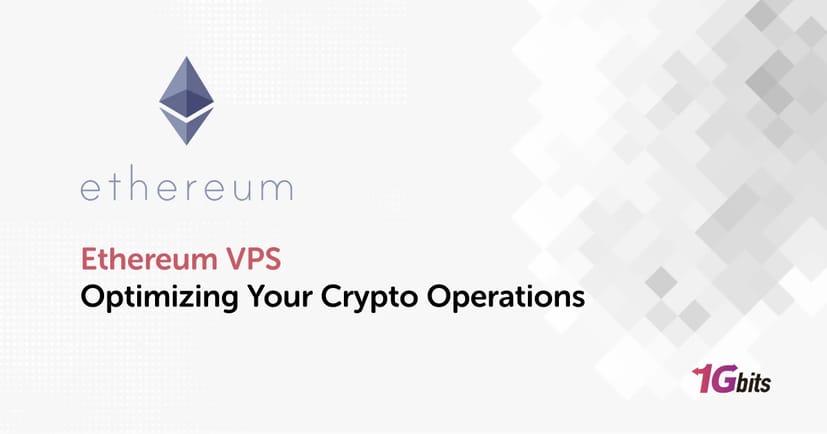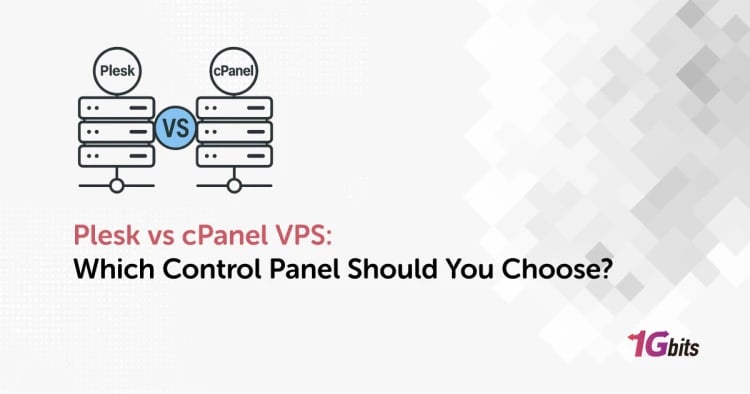The rise of Ethereum as a dominant blockchain platform has created an urgent need for robust, high-performance hosting solutions. An Ethereum VPS (Virtual Private Server) is a specialized hosting service designed to support Ethereum nodes, validators, staking operations, and decentralized applications (dApps). Whether you’re an individual staking 32 ETH, a developer deploying a dApp, or an enterprise managing multiple validator nodes, choosing the right VPS can make or break your crypto operations.
In this guide, you’ll learn what an Ethereum VPS is, the unique advantages it offers over traditional fiat VPS providers, and how to set up, optimize, and secure your environment for maximum uptime, performance, and return on investment (ROI). We’ll also break down cost-benefit considerations, show you advanced performance tuning tips, and answer the most common FAQs about Ethereum VPS hosting.
What Is an Ethereum VPS?
An Ethereum VPS hosting is a virtual server specifically optimized to run Ethereum-related workloads. This can include:
-
Running a full Ethereum node to verify transactions and maintain blockchain integrity.
-
Hosting validator nodes for Ethereum 2.0 staking to earn rewards.
-
Deploying dApps that interact with smart contracts on the Ethereum blockchain.
-
Participating in DeFi protocols, NFT projects, or any use case that demands decentralized trust and uptime.
Unlike traditional VPS services paid via credit card or bank transfer, a VPS for Ethereum node typically allows you to pay directly with ETH or other cryptocurrencies, offering greater privacy and financial autonomy for crypto-native businesses and individuals.
Why Use an Ethereum‑Specific VPS?
Running blockchain infrastructure requires more than just generic hosting. Here’s why an Ethereum‑tailored VPS is worth considering.
Crypto‑Friendly Payments for Privacy
One of the core benefits of using a VPS for Ethereum node is the ability to pay with ETH or other crypto assets. This not only aligns with your Web3 ethos but also enhances privacy and minimizes exposure to fiat payment processors that may flag crypto-related transactions. If you’d like to compare different providers, check out our roundup of Top VPS Providers for Running an Ethereum Node.
Optimized Infrastructure
Blockchain nodes and validators demand consistent read/write speeds, fast syncing, and low-latency network connections. Leading Ethereum VPS providers use NVMe or SSD storage, 1–10 Gbps bandwidth, and optimized CPU/RAM allocations to ensure your nodes stay synced and responsive during peak loads.
Enhanced Security
Your node or validator is only as secure as its server environment. A quality VPS for Ethereum node will offer DDoS protection, advanced firewalls, and automatic OS updates to guard against attacks that could compromise your funds or disrupt staking uptime.
99.99% Uptime & Geo‑Distributed Data Centers
Validators and nodes must remain online to process transactions and earn staking rewards. Top-tier providers offer geo-distributed data centers for redundancy and low-latency connectivity to major Ethereum peers. If you run multiple validators, you can even deploy nodes in different regions for failover and resilience.
Ethereum VPS vs Fiat VPS: Comparison
|
Feature |
Ethereum VPS |
Traditional Fiat VPS |
|
Payment |
Pay in ETH/BTC/USDT |
Credit card/bank transfer |
|
Privacy |
High, crypto-only transactions |
Lower, KYC/AML checks |
|
Performance |
Optimized for node workloads |
Generic hosting |
|
Security |
Crypto-specific DDoS/firewall |
Standard |
|
Support |
Blockchain-aware support |
Generic IT support |
How to Choose the Right Ethereum VPS Provider
Not all VPS plans are created equal — especially when it comes to crypto workloads. Here’s what to look for:
Key Specs: CPU, RAM, Storage, Bandwidth
Running an Ethereum node or validator isn’t as light as a static website. For a typical execution layer node:
-
CPU: Multi-core CPUs for processing transactions quickly.
-
RAM: Minimum 4–16 GB RAM for light nodes; 32–64 GB for archive/full nodes.
-
Storage: SSD or NVMe. Expect ~1–2 TB for full nodes; archive nodes may exceed 10 TB.
-
Bandwidth: High-speed 1–10 Gbps connections with unmetered or generous caps.
Use Case: Nodes vs Validators vs dApps
Your resource needs will vary:
-
Full/Archive Nodes: Heavy storage and consistent syncing.
-
Validators: Modest storage but ultra-high uptime and redundancy.
-
dApps: Often require robust back-end frameworks, databases, and additional security layers.
Cost Factors
When paying with crypto, look for transparent pricing that includes:
-
Transaction fees (on-chain costs can vary).
-
Staking ROI projections — downtime penalties can reduce your yield.
-
Upgrade paths — can you scale resources as your needs grow?
Support & Service Level Agreements (SLA)
Reliable support is critical. Seek providers that offer 24/7 crypto-experienced technical support and clear SLAs for uptime guarantees and incident response times.
Geographic Latency & Redundancy
Where your VPS sits matters. For example:
|
Region |
Avg. Latency to Ethereum Peers |
|
North America |
30–50 ms |
|
Europe |
20–40 ms |
|
Asia-Pacific |
50–100 ms |
Deploying in multiple zones can help maintain connectivity and uptime if one region experiences outages.
✅ Security Hardening Checklist for Ethereum VPS Hosting
When running a validator, node, or hosting dApps on your Ethereum VPS, your infrastructure is only as secure as your setup. To learn how to setup Ethereum validator VPS, use this actionable checklist to ensure your crypto operations are resilient against attacks or unexpected failures:
SSH Key Management:
-
Always use SSH key-based authentication instead of passwords.
-
Store private keys in secure hardware wallets or encrypted vaults.
-
Regularly rotate SSH keys to reduce the risk of compromise.
Firewall & Port Restrictions:
-
Configure firewalls to only allow essential inbound/outbound traffic.
-
Use non-standard ports for SSH connections to deter brute force attempts.
-
Leverage provider-level DDoS protection and automatic updates for the OS.
Secure Wallet & Key Storage:
-
Never store validator keys on the same server as your staking wallet.
-
Use separate VPS instances or hardware security modules (HSMs) to isolate keys.
-
Encrypt backups and store them securely offline.
Regular Backups & Failover Planning:
-
Automate regular snapshots of your VPS configuration and blockchain data.
-
Keep offsite backups in case of hardware failure or accidental data corruption.
-
Design a failover plan using redundant nodes in different data centers for maximum uptime.
By following this checklist, you not only protect your crypto assets but also maintain the integrity and availability of your Ethereum nodes.
💸 Ethereum VPS Hosting Cost & Performance Breakdown
Cost is one of the biggest factors when selecting an Ethereum VPS, especially for long-term staking or validator operations. Let’s break down what you can expect:
📊 Sample Cost Table
|
Provider |
Entry Plan (Monthly) |
Recommended Specs |
Payment Option |
|
1Gbits |
$8–$15 USD or equivalent in ETH |
2–4 vCPU, 4–8 GB RAM, 100 GB SSD |
ETH, BTC, Fiat |
|
Hostkey |
$15–$30 USD |
4–8 vCPU, 16–32 GB RAM, NVMe SSD |
ETH, BTC |
|
MonoVM |
$10–$20 USD |
2–8 vCPU, 8–16 GB RAM |
ETH, BTC, Fiat |
Tip: For optimal performance, choose a plan with at least 8 GB RAM, high IOPS SSD or NVMe, and scalable bandwidth.
💡 ROI Estimation for Ethereum Staking
Running an Ethereum validator requires a minimum 32 ETH deposit. At current prices, the annual staking yield can range from 3%–6% depending on network conditions and uptime:
-
Example:
-
32 ETH staked = ~ $60,000 USD
-
Estimated annual yield = 1–2 ETH ($2,000–$4,000)
-
VPS cost: $150–$400/year → negligible relative to yield.
💳 TCO: Fiat vs. Crypto Payment
When you pay for your VPS with ETH instead of a traditional credit card:
-
You maintain privacy—no bank statements or intermediary fees.
-
You avoid exchange rate losses when converting crypto to fiat.
-
You can stake your remaining ETH more efficiently.
In short, paying in ETH supports a fully decentralized finance ecosystem while giving you financial privacy.
⚡ Final Thoughts: Optimize Your Crypto Operations with 1Gbits
Running your Ethereum node or validator on a well-optimized VPS is one of the smartest moves for anyone serious about staking, DeFi, or blockchain infrastructure. By choosing a crypto-friendly, high-performance VPS, you gain better privacy, lower costs, and maximum uptime.
If you’re ready to take the next step, check out our Ethereum VPS.










